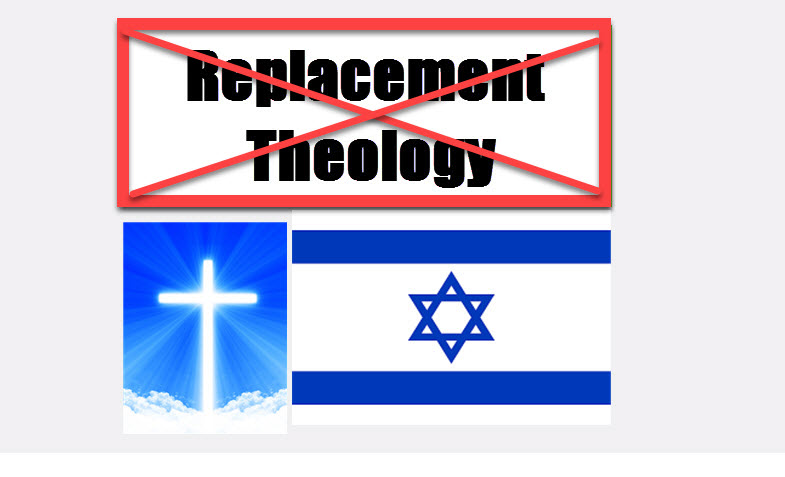 Pentecost is not only the day spoken of in Acts 2, but was an important Biblical date going back to Moses…could this be more than coincidence? Biblically the date is 50 days after Passover which this year is 5/30/2017 or the tradition of many churches is to celebrate 50 days after Easter which would be 6/4/2017
Pentecost is not only the day spoken of in Acts 2, but was an important Biblical date going back to Moses…could this be more than coincidence? Biblically the date is 50 days after Passover which this year is 5/30/2017 or the tradition of many churches is to celebrate 50 days after Easter which would be 6/4/2017
According to the Torah, Pentecost was also known as the Festival of weeks to occur 50 days after the Passover. This was a well-known and regular practice of Jews, including during Jesus’ time, to count toward the 50th day with great excitement as it was a major celebration.
Leviticus 23:15-16 (NIV)
“And you shall count for yourselves from the day after the Sabbath, from the day that you brought the sheaf of the wave offering: seven Sabbaths shall be completed. 16 Count fifty days to the day after the seventh Sabbath; then you shall offer a new grain offering to the Lord.â€
The Counting of the Omer, written about by Simchat Torah Beit Midrash, covers a fifty-day period of time from the Feast of First Fruits until Festival of Weeks (Passover to Pentecost). Beginning with the day of First Fruits, each subsequent day is counted for seven complete weeks, plus one day – fifty days. Each year the Counting of the Omer is completed with a growing expectation of what the LORD will do on Shavuot (Pentecost), the fiftieth day. The disciples of Yeshua waited, counting the Omer with great expectation, for this, “Promise of the Father… power from on high” That Yeshua told them to expect.
They would not have looked for this outpouring during the first week of the Omer, or even on day forty-five of the counting. They would have understood the LORD’S instruction to “tarry in the city of Jerusalem.” This was the place they were to stay, counting the Omer, each day with a greater anticipation and each week being that much closer to the fiftieth day. Source: http://stbm.org
 Why were the disciples there? After all, they were all from out of town, not Jerusalem; so, was it coincidence or a PLAN?
As Scripture teaches, it was most definitely the plan. Almost as-if Jesus said “…wait for it…† Because during the Counting of the Omer, there is a “count up” to the Feast of Shavuot (the 50th day) with each day of counting, adding to the growing expectation of what Pentecost will bring.
Acts 2 teaches that the Holy Spirit comes at Pentecost:
“When the day of Pentecost came, they were all together in one place. Suddenly a sound like the blowing of a violent wind came from heaven and filled the whole house where they were sitting. They saw what seemed to be tongues of fire that separated and came to rest on each of them. All of them were filled with the Holy Spirit and began to speak in other tongues as the Spirit enabled them. Now there were staying in Jerusalem God-fearing Jews from every nation under heaven. When they heard this sound, a crowd came together in bewilderment, because each one heard their own language being spoken. Visitors from Rome (both Jews and converts to Judaism); Cretans and Arabs—we hear them declaring the wonders of God in our own tongues! Amazed and perplexed, they asked one another, What does this mean? Then Peter stood up with the Eleven, raised his voice and addressed the crowd: Fellow Jews and all of you who live in Jerusalem, let me explain this to you; listen carefully to what I say. These people are not drunk, as you suppose. It’s only nine in the morning! No, this is what was spoken by the prophet Joel 2:28-32 (NIV): In the last days, God says, I will pour out my Spirit on all people. Your sons and daughters will prophesy, your young men will see visions, your old men will dream dreams. Even on my servants, both men and women, I will pour out my Spirit in those days, and they will prophesy. I will show wonders in the heavens above and signs on the earth below, blood and fire and billows of smoke. The sun will be turned to darkness and the moon to blood before the coming of the great and glorious day of the Lord. And everyone who calls on the name of the Lord will be saved.â€
As the Apostle Peter States that Joel validates Pentecost, what else do the prophecies of Joel confirm regarding God and Israel?
Click below:
Both before and after Joel 2:28 regarding the release of the Holy Spirit, there are clear references to Israel:
Joel 2:18-19 (NIV) says: “Then the Lord was jealous for his land and took pity on his people. The Lord replied to them I am sending you grain, new wine and olive oil, enough to satisfy you fully; ever again will I make you an object of scorn to the nationsâ€
And in Joel 3:1-2 (NIV): “In those days and at that time, when I restore the fortunes of Judah and Jerusalem, I will gather all nations and bring them down to the Valley of Jehoshaphat. There I will put them on trial for what they did to my inheritance, my people Israel, because they scattered my people among the nations and divided up my land.â€
Joel clearly states God’s love and commitment to all of Israel, (land & people) in fact, saying that they are His inheritance!! Those that harm them will be put on trial. Can this be stated more concisely or clearly?
Festival of Weeks/First Fruits: Since First Fruits this was given 1st to the Jews. Â
Represents a Biblical Thanksgiving Day:
Deut. 16:11 (NIV) says: “And rejoice before the Lord your God at the place he will choose as a dwelling for his Name—you, your sons and daughters, your male and female servants, the Levites in your towns, and the foreigners, the fatherless and the widows living among you.â€
This is an exciting verse because this list includes every variation imaginable that the LORD is saying His Name dwells in! Not just a building, but His people!
Then in verse 16 we are told: “Three times a year all your men must appear before the Lord your God at the place he will choose: at the Festival of Unleavened Bread, the Festival of Weeks and the Festival of Tabernacles. No one should appear before the Lord empty-handedâ€
So, we see that God required 3 appointments that had to be kept with Him. But those weren’t punitive in nature for violating “lawsâ€, but were celebrations for all peoples in Israel acknowledging God’s goodness and favor to provide for them physically and spiritually.
Dr. Erez Soref wrote an article for One for Israel that an illustration of this principle is found in the Jewish Feast of Weeks, where farmers bring their first fruits into the temple. This feast is also known as Pentecost, because the Israelites had to count fifty days from beginning of Passover, after which the first fruits were presented to the Lord. On the first day after Passover, farmers would go out to look at their harvest to find the buds that sprang first. They would have special ribbons to mark those buds, and for the next fifty days they will tend their crop, paying careful attention to the ones they had marked. On the third day after Passover, the farmer would walk around again, and those buds that were ready to be presented would be cut right away, taken to the temple and waved before God.
On the fiftieth day, the farmer cuts all his marked plants but nothing else. Rather than only bringing ten percent, the entire crop of first fruits are taken and left in the temple. He can do this with joy and faith, because he knows that when first fruits are given to God, the entire harvest will be blessed.
This is a CELEBRATION!
Of course, this also speaks to us of Yeshua rising again on the third day, the first fruits of those to be resurrected and in the first outpouring of God’s Spirit to reside in the hearts of men who call on His name.
As with Festivals, if it is not “required†can it still be “good†for us?
For example, Thanksgiving teaches us to have a thankful heart. Can we as modern-day Christians take the same approach with the Jewish Festival and extract meaning and purpose from these Biblical Thanksgivings? Yes, we are to be thankful every day to God, but are we? Or are we similarly needing a reminder and a firm opportunity to celebrate and remember God’s goodness both individually and corporately?
Lastly, what understanding of First Fruits and Weeks (Pentecost) do we miss out on by not considering the biblical foundation for the events of Jesus’ life as a Jew? Can we pick and choose Scriptures and ignore what doesn’t fit with our traditions? Or should we consider all Scripture in the context it was written-read the Bible!Â
Was this Pentecost a one-time event or, as implied in Joel, a new move of God and is this still for believers today?
This particular Shavuot spoken of in Acts was an epic event in the annals of mankind. What made it epic was that on this day, the God of creation who had previously made his abode in the heavenlies, changed His residency to make His dwelling place in the hearts of men. Heaven is God’s throne. He moved the throne, heaven moved with Him when we faithfully enter into a relationship with Him. The essence of His nature and character was now etched on the beings of men willing to enter into a relationship and to fashion and conform their lives to Him. Thus, fulfilling His promise to restore His Kingdom. Think about that, the very presence in life, the very location that God chooses to live was no longer in the temple, but was in us; in the people who were present there.
Just like there was a choice for Adam and Eve in the garden, we have a choice to fully embrace His essence and His character and His nature…or not. But we have a Helper who resides in us now. That’s what made this such a monumental event. It had never occurred before, and it changed everything.
Like this article? Like us on Facebook!

Wonderful writing! God has moved His followers to accept biblical teaching over traditions of men in these last days. Wise words 🙂